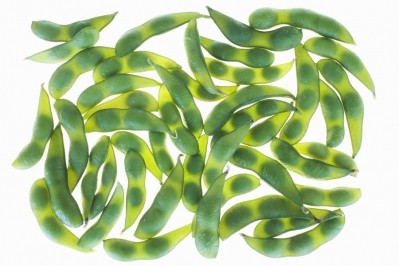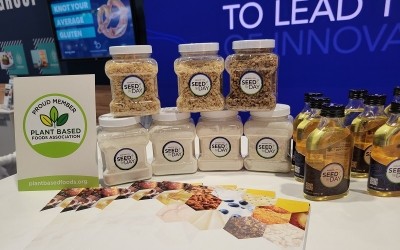IFT FIRST: U.S. Soy demonstrates the versatility of soy ingredients in product formulations
"Soy has been in high demand recently within the food industry, both on the protein and the oil side,” Heggie said. The global soybean market was worth $185.16bn in 2023 and is expected to be worth $259.70bn by 2028, growing by a 7% CAGR between 2023 and 2028, due to increases in soybean meal and soy lecithin in ice cream, dairy products, and dietary supplements, according to Mordor Intelligence.
While demand for soybean ingredients remain strong across the globe, farmers are planting slightly fewer soybean this year than last year, according to USDA’s Soybeans & Oil Crops Outlook. USDA found that US planted soybean acreage in 2023/24 totaled 83.5 million acres, which is 5% lower than last year, and it’s estimated that the US will produce 210m bushels less than predicted to 4.3bn bushels this year, the report found.
Soy stands out from other plant-based proteins because of its “amino acid profile that helps support growth and development and protein needs for both children and adults,” Heggie said. Research also demonstrates the heart health and muscle benefits from consuming soy and soy-based products, she claimed.
In addition, soy is “one of the most versatile plant proteins sources that you can possibly work with and goes into many diverse and interesting applications,” including snack bars, dairy products, meat alternatives and a host of other applications, Heggie said. At the booth, U.S. Soy demoed soy ingredients in plant-based chicken nuggets with a soy protein, a soy-based coffee creamer, and doughnuts with soy shortening, she added.
Embracing regenerative agriculture on the farm
The soy industry is looking to promote sustainable and responsible farming through the use of regenerative agriculture practices, Heggie noted. With these practices, US soybean farmers can meet the demand for protein around the world and ensure that their farm provides for this generation and the next, she added.
"Soy farmers are very much into sustainable farming practices and participate and apply many of those regenerative agriculture practices at the farm such as use of cover crop, crop rotation, low-till [and] no-till practices, precision-farming techniques, those are all tools [that] are available and widely used among US soybean farmers today,” Heggie said. “Many are multi-generational farmer, so they are committed to keep that land sustainable and profitable and effective for many many years to feed families today as well to feed their family members tomorrow.”
![[Video] CarobWay demonstrates low caloric, functional properties of carob fruit at IFT FIRST 2023](/var/wrbm_gb_food_pharma/storage/images/_aliases/wrbm_medium/publications/food-beverage-nutrition/foodnavigator-usa.com/news/suppliers/video-carobway-demonstrates-low-caloric-functional-properties-of-carob-fruit-at-ift-first-2023/16632324-1-eng-GB/Video-CarobWay-demonstrates-low-caloric-functional-properties-of-carob-fruit-at-IFT-FIRST-2023.png)






















